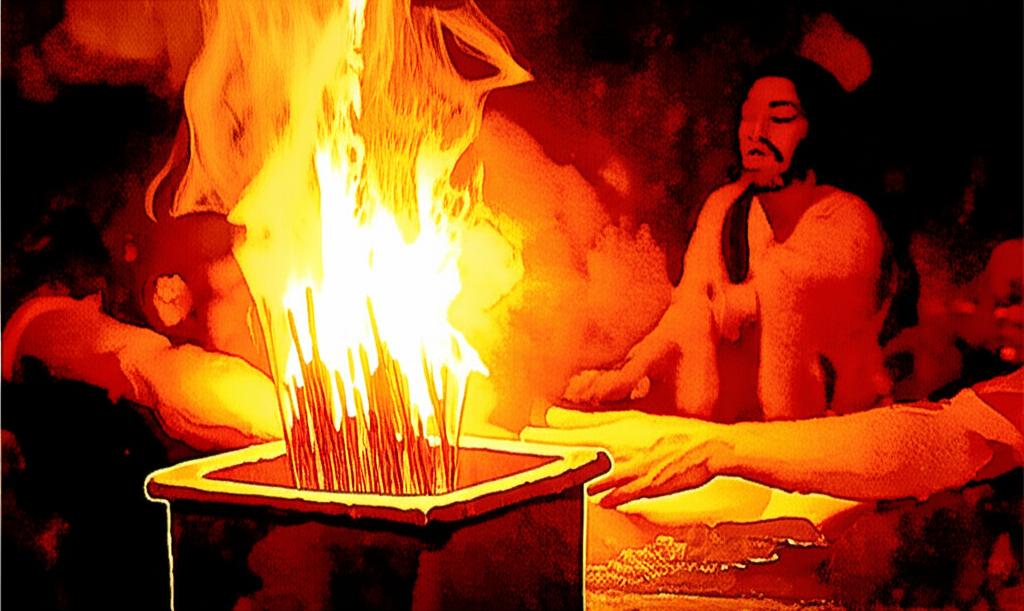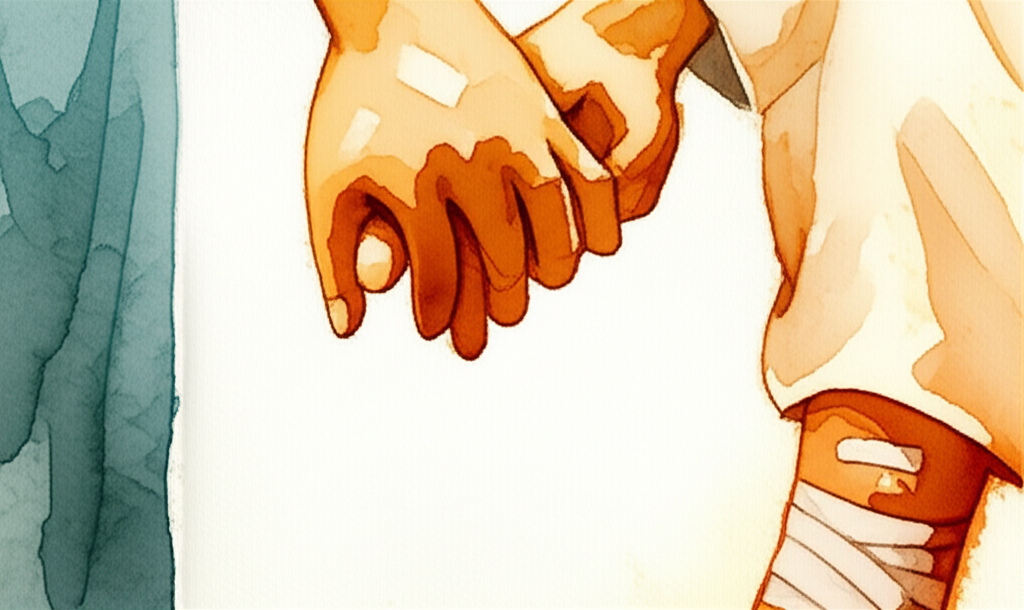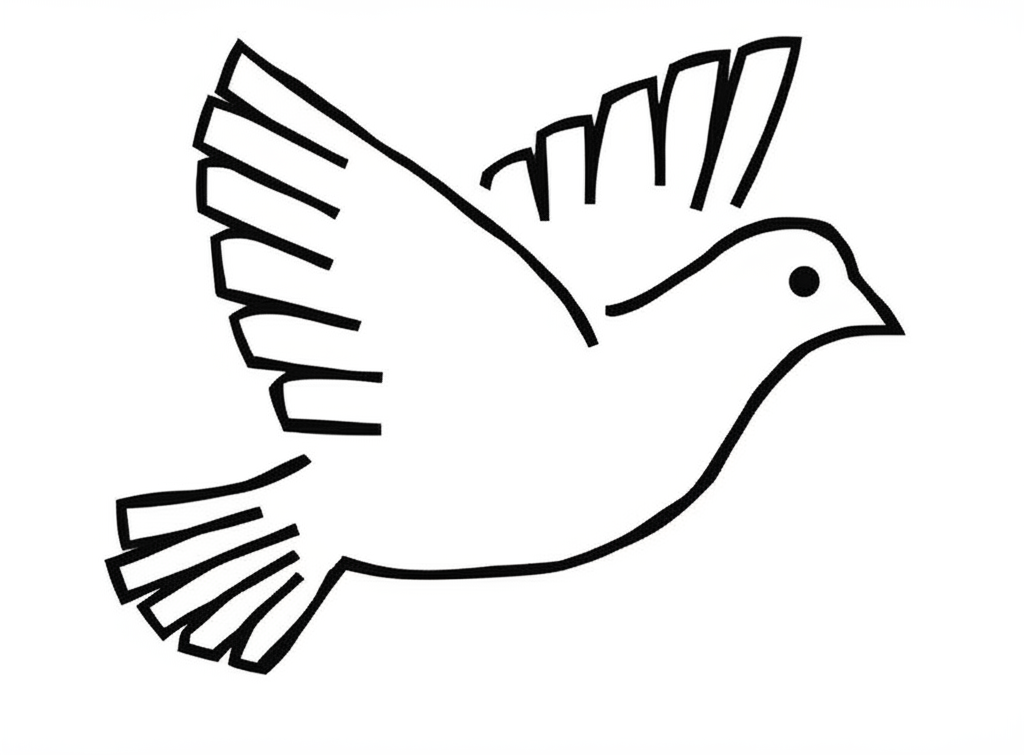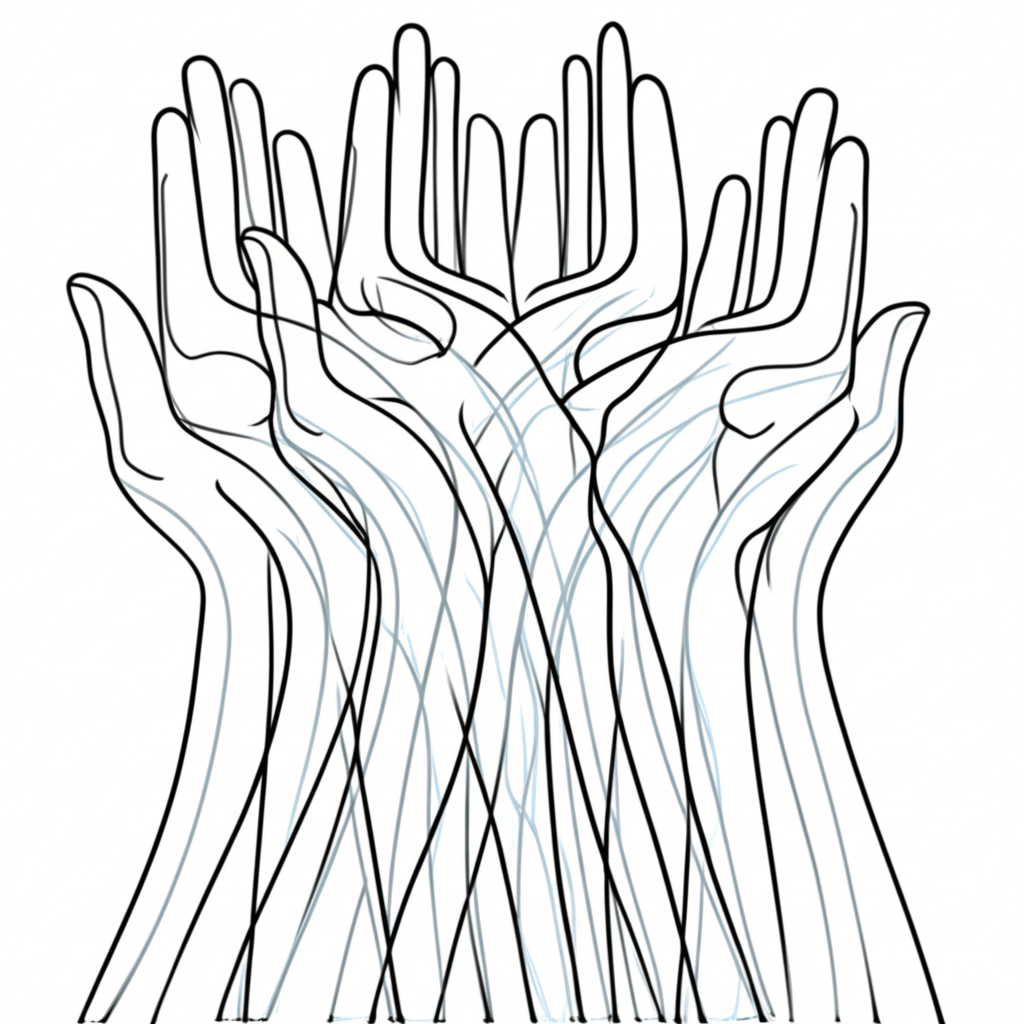Hosea 11 meaning explained in AI Summary
Chapter 11 of Hosea marks a shift in tone from judgment to poignant lament and a glimmer of hope. It highlights God's enduring love for Israel, despite their persistent unfaithfulness.
1. God's Fatherly Love (11:1-4):
- God reminisces about Israel's early days, comparing His love to a father's tender care.
- He remembers leading them out of Egypt, teaching them to walk, and showering them with affection.
- However, Israel responded to this love with stubbornness and idolatry.
2. God's Anguish and Reluctant Discipline (11:5-7):
- God's heart is torn between His love and His justice.
- He grapples with the necessity of discipline, knowing their rebellion will lead them back to Egypt (figuratively, to oppression and suffering).
- The imagery evokes a sense of God's deep pain and reluctance to punish.
3. God's Unfailing Compassion (11:8-11):
- Despite His anger, God's compassion prevails.
- He cannot bring Himself to utterly destroy Israel, likening Himself to a loving father who cannot abandon his child.
- He promises restoration and return from exile, using powerful imagery of roaring like a lion to gather His people.
4. Israel's Continued Unfaithfulness (11:12):
- Despite God's promises, the chapter ends on a somber note.
- Israel, symbolized by Ephraim, continues to cling to deceit and falsehood, rejecting God's love.
Key Themes:
- God's Unconditional Love: Despite Israel's repeated betrayals, God's love remains steadfast and unwavering.
- Divine Dilemma: The chapter portrays the tension between God's justice and mercy, His desire to both punish sin and redeem His people.
- Hope for Restoration: Even amidst judgment, a glimmer of hope shines through God's promise of eventual restoration and return.
Overall Message:
Hosea 11 is a powerful reminder of God's enduring love for His people, even in the face of their persistent unfaithfulness. It serves as both a lament over Israel's rebellion and a testament to the depth of God's compassion and willingness to forgive.
Hosea 11 bible study ai commentary
The central theme of Hosea 11 is the profound, emotional, and unbreakable love of God for His rebellious people, portrayed through the powerful metaphor of a parent's love for a child. The chapter masterfully depicts a dramatic tension between God’s righteous anger, which demands judgment, and His deep compassion, which yearns for restoration. God’s memory of Israel’s youth and His own divine nature ultimately tip the scales toward mercy, promising a future restoration despite the imminent punishment of exile.
Hosea 11 Context
Hosea ministered in the Northern Kingdom of Israel (also called Ephraim, after its dominant tribe) during the 8th century BC. This was a time of political instability following the prosperous reign of Jeroboam II, marked by a series of assassinations and weak kings. The formidable Assyrian empire loomed, threatening invasion. Spiritually, Israel was deeply corrupt, blending the worship of YHWH with Canaanite Baalism. Baal was a fertility god believed to provide rain, crops, and children, and Hosea frequently confronts Israel's belief that their prosperity came from Baal rather than their true covenant God, YHWH.
Hosea 11:1
"When Israel was a child, I loved him, and out of Egypt I called my son."
In-depth-analysis
- Parent-Child Metaphor: God's relationship with Israel is established as that of a father to a beloved son. This is not a relationship based on a formal, cold contract, but on foundational, historical love.
- "A Child" (
naar`): The Hebrew word implies youth and dependence, emphasizing Israel's helplessness and God's initiative in the relationship. - "I loved him": God's love is the starting point of Israel's entire history, preceding the giving of the Law at Sinai.
- "Out of Egypt I called my son": The Exodus is re-framed. It was not just a geopolitical liberation but an intimate act of a Father calling His child out of bondage into a personal relationship.
Bible references
- Matthew 2:15: "...Out of Egypt I called my son." (Direct Quotation & Fulfillment: Matthew sees Israel's history as a type, a pattern fulfilled perfectly in the life of Jesus, God's ultimate Son, who also came out of Egypt.)
- Exodus 4:22: "...Thus says the Lord, ‘Israel is my firstborn son...'" (Establishes Sonship: This verse is the foundational declaration of Israel's status, which Hosea echoes.)
- Romans 9:4: "They are Israelites, and to them belong the adoption..." (Affirmation of Israel's Status: Paul affirms the unique "adoption" of Israel as sons, a privilege foundational to their identity.)
Cross references
Jer 2:2 (Israel's youthful devotion), Deu 7:7-8 (God's love as basis of covenant), Rom 1:7 (believers called and loved).
Hosea 11:2
"But the more they were called, the more they went away from me. They sacrificed to the Baals and they burned incense to images."
In-depth-analysis
- Tragic Paradox: God's persistent calling through His prophets (
they were called) had the opposite effect, producing deeper rebellion. - The Baals: The plural form refers to the various local manifestations and images of the Canaanite storm and fertility god, Baal. This was Israel's chief sin: spiritual adultery.
- "Went away from me": The verse contrasts God's personal, loving call ("my son" in v. 1) with their impersonal, distant departure from Him (
from me- literally 'from my face/presence').
Bible references
- Jeremiah 7:25-26: "From the day that your fathers came out of the land of Egypt to this day, I have persistently sent all my servants the prophets to them... yet they did not listen to me..." (Parallel History of Rebellion: Jeremiah recounts the same pattern of prophetic calling met with stubborn disobedience.)
- 2 Kings 17:13-15: "Yet the Lord warned Israel and Judah... but they would not listen, but were stubborn... They followed vanity and became vain..." (Historical Account of Rebellion: The historical books confirm the prophetic indictment, listing idolatry as the reason for the Assyrian exile.)
Cross references
Jud 2:11-13 (cycle of apostasy), Isa 1:2-4 (rebellious children), Jer 11:13 (altars to Baal).
Hosea 11:3
"It was I who taught Ephraim to walk, taking them by their arms; but they did not realize it was I who healed them."
In-depth-analysis
- Ephraim: Used here as a synonym for the Northern Kingdom of Israel, it adds a layer of familial intimacy, as Ephraim was a key son of Joseph.
- Tender Imagery: The metaphor deepens to a parent teaching a toddler to walk. It captures God's patient guidance and support during Israel's formative years in the wilderness.
- "By their arms": The image is of a parent holding a child's arms to steady them as they learn, a picture of profound, personal care.
- Willful Ignorance: "They did not realize..." Israel's tragedy was not a lack of evidence of God's care, but their refusal to acknowledge Him as the source of their healing and well-being.
Bible references
- Deuteronomy 32:10-11: "In a desert land he found him... He encircled him, he cared for him, he kept him as the apple of his eye. Like an eagle that stirs up its nest..." (Similar Wilderness Imagery: The Song of Moses uses similar tender, parental imagery to describe God's care for Israel in the wilderness.)
- Deuteronomy 1:31: "...in the wilderness... the Lord your God carried you, as a man carries his son..." (Fatherly Care: Moses explicitly uses the father-carrying-son metaphor for the wilderness journey.)
Polemics
This is a direct polemic against Baal worship. The people attributed their health, crops, and national well-being (healed them) to Baal. YHWH forcefully reclaims His identity as the true Healer and Provider, exposing their misplaced gratitude.
Hosea 11:4
"I led them with cords of human kindness, with ties of love. To them I was like one who lifts a little child to the cheek, and I bent down to feed them."
In-depth-analysis
- "Cords of human kindness" (
chevel Adam): God did not lead with harsh chains but with gentle, human-level tethers. It speaks of a leadership of compassionate relationship, not coercive force. - "Ties of love" (
avotot ahavah): The Hebrew forlove(ahavah) is reinforced, emphasizing affection and deep attachment. - Unparalleled Intimacy: The imagery shifts from teaching a toddler to walk to lifting a child to one's cheek for a kiss or embrace. This is an act of pure affection and intimacy.
- "Bent down to feed them": God condescends and stoops down to meet their needs. It completes the picture of a parent who not only guides and loves, but also personally provides nourishment.
Bible references
- Jeremiah 31:3: "the Lord appeared to him from far away. I have loved you with an everlasting love; therefore I have continued my faithfulness to you." (Everlasting, Drawing Love: Captures the essence of God's drawing love mentioned by Hosea.)
- Philippians 2:6-7: "...though he was in the form of God... emptied himself, by taking the form of a servant... being found in human form." (The Ultimate Condescension: Christ's incarnation is the supreme example of God "bending down" to humanity.)
Cross references
Psa 103:13 (father's compassion), Isa 63:9 (God's love and redemption), John 6:35 (Jesus as the bread who nourishes).
Hosea 11:5-6
"Will they not return to Egypt, and will not Assyria rule over them because they refuse to repent? A sword will rage in their cities, slashing their priests, and putting an end to their plans."
In-depth-analysis
- Rhetorical Reversal: The language of "return" (
shuv) is used ironically. Since they refuse to "return" (shuv) to God, they will "return" (shuv) to a state of bondage like Egypt, with Assyria as the new master. - Egypt as Symbol: While some Israelites did flee to Egypt (2 Kings 25:26), "Egypt" primarily functions as a symbol of slavery and the reversal of the Exodus. Assyria is the literal instrument of this judgment.
- Judgment on Leadership: The "sword" will not spare their leaders ("priests" or "prophets" depending on the translation), highlighting that the corruption started at the top. It will destroy their false counsels and "plans" that led them astray.
Bible references
- Deuteronomy 28:68: "And the Lord will bring you back in ships to Egypt... and you shall offer yourselves for sale to your enemies as male and female slaves, but there will be no buyer." (Covenant Curse: This judgment is a direct fulfillment of the covenant curses for disobedience written in the Torah.)
- Amos 7:17: "...your sons and your daughters shall fall by the sword, and your land shall be divided up with a measuring line, and you yourself shall die in an unclean land..." (Contemporary Prophecy: The prophet Amos, a contemporary of Hosea, delivered a similar message of violent judgment.)
Cross references
Lev 26:33 (scattering by sword), 2 Ki 17:6 (historical exile to Assyria), Pro 1:31 (eating fruit of their way).
Hosea 11:7
"My people are determined to turn from me. Even though they call me God Most High, they do not exalt me at all."
In-depth-analysis
- "Determined to turn from me": The Hebrew implies an addiction to apostasy; their backsliding is a settled disposition.
- Empty Religion: "They call me God Most High" (or "they call to the one on high") shows a disconnect between their words/rituals and their hearts. They may go through the motions of religion, but there is no genuine honor or exultation of God in their lives.
- Refusal to Rise: "they do not exalt me at all" literally means 'together they will not lift up.' There is a communal refusal to give God his proper place.
Bible references
- Isaiah 29:13: "And the Lord said: 'Because this people draw near with their mouth and honor me with their lips, while their hearts are far from me...'" (Hypocrisy Denounced: Isaiah diagnoses the same spiritual disease—lip service without heart-worship.)
- Jeremiah 8:5: "Why then has this people turned away in perpetual backsliding? They hold fast to deceit; they refuse to return." (Perpetual Backsliding: Jeremiah also speaks of the chronic, settled nature of the people's rebellion.)
Cross references
Psa 78:56-57 (testing God Most High), Mat 15:8-9 (honoring with lips), Hos 4:16 (stubborn as a heifer).
Hosea 11:8
"How can I give you up, Ephraim? How can I hand you over, Israel? How can I treat you like Admah? How can I make you like Zeboiim? My heart is changed within me; all my compassion is aroused."
In-depth-analysis
- Divine Pathos: This is the dramatic climax of the chapter. God’s monologue reveals an intense inner conflict between His justice and His love. The rapid-fire rhetorical questions express agony and turmoil.
- Admah and Zeboiim: These were two cities of the plain destroyed with Sodom and Gomorrah (Gen 10:19, Deut 29:23). To treat Israel like them would mean total, final annihilation. God recoils from this possibility.
- "My heart is changed within me": A powerful anthropomorphism. God’s "heart" (
lev) turns over within Him. It’s a visceral, emotional description of His decision turning from wrath toward mercy. - Compassion Aroused: "All my compassion is aroused" (
nichumaifromnacham, to have compassion/pity). His mercy is kindled and burns hotly, overpowering the fire of His wrath.
Bible references
- Jeremiah 31:20: "Is Ephraim my dear son? Is he my darling child? For as often as I speak against him, I do remember him still. Therefore my heart yearns for him; I will surely have mercy on him..." (God's Yearning Heart: A stunning parallel where God's heart "yearns" for Ephraim, leading to a promise of mercy.)
- Deuteronomy 29:23: "...the whole land burned out with brimstone and salt... like the overthrow of Sodom and Gomorrah, Admah, and Zeboiim..." (Reference to utter destruction that God refuses to inflict on Israel).
- Lamentations 3:22: "The steadfast love of the Lord never ceases; his mercies never come to an end;" (Affirmation of Unfailing Mercy: Captures the theological truth behind God's decision in Hosea.)
Hosea 11:9
"I will not carry out my fierce anger, nor will I turn and devastate Ephraim. For I am God, and not a man— the Holy One in your midst— and I will not come in wrath."
In-depth-analysis
- "I am God, and not a man": This is the theological anchor for God's mercy. A human being, if betrayed so deeply, would act out of wounded pride and retaliate with full destructive force. God's actions are not dictated by reactive human emotions.
- The Holy One (
Qadosh): God’s holiness, often associated with His righteous judgment and separateness from sin, is paradoxically presented as the very reason for His mercy. His nature is fundamentally different, more faithful, and more loving than humanity's. - Restraint of Wrath: This does not cancel the judgment of the Assyrian exile (which is still coming). Rather, it means the punishment will not be an act of "fierce anger" aimed at total annihilation (
devastate Ephraim). It will be corrective, not purely destructive.
Bible references
- Numbers 23:19: "God is not man, that he should lie, or a son of man, that he should change his mind. Has he said, and will he not do it?" (God's Unchanging Character: While seemingly contradictory, both passages show God's actions are based on His divine character, not human capriciousness. In Numbers, it's about his faithfulness to his promise; in Hosea, it's about his faithfulness to his love.)
- Isaiah 55:8-9: "For my thoughts are not your thoughts, neither are your ways my ways... For as the heavens are higher than the earth, so are my ways higher than your ways..." (God's Otherness: Explains the principle behind Hosea 11:9—God's motivations and character transcend human comprehension and standards.)
Hosea 11:10
"They will follow the Lord; he will roar like a lion. When he roars, his children will come trembling from the west."
In-depth-analysis
- The Lion's Roar: Previously a symbol of terrifying judgment (Amos 3:8), the roar of YHWH is re-purposed here. It is now a powerful, summoning call that gathers His scattered people.
- "Follow the Lord": This signals a future repentance and restoration. The very people who "went away" (v. 2) will finally follow their God.
- "Come trembling" (
yecheradu): This is not the trembling of terror but of awe, reverence, and eager haste. They hear the Father's call and hurry home. - "From the west": This refers to the Mediterranean region and beyond, indicating a worldwide regathering from exile.
Bible references
- Joel 3:16: "The Lord roars from Zion, and utters his voice from Jerusalem, and the heavens and the earth quake. But the Lord is a refuge to his people..." (Dual Nature of the Roar: Shows the roar as both judgment for God's enemies and a signal of refuge for His people.)
- Isaiah 11:11-12: "...the Lord will extend his hand a second time to recover the remnant of his people... from Assyria, from Egypt... and from the coastlands of the sea." (Promise of a Second Exodus: Details the global scope of the restoration prophesied by Hosea.)
Cross references
Amos 1:2 (lion's roar as judgment), Zec 8:7-8 (saving His people from east and west), Joh 10:27 (My sheep hear my voice).
Hosea 11:11
"They will come from Egypt, trembling like sparrows, from Assyria, fluttering like doves. I will settle them in their homes,” declares the Lord."
In-depth-analysis
- Birds Imagery: Sparrows and doves are small, timid, non-predatory birds. This contrasts sharply with the lion's roar that calls them. It suggests they return not in military might, but in vulnerable dependence on God. They are 'fluttering' or 'trembling' in their eagerness.
- Egypt and Assyria: The specific mention of their places of exile (and major historical enemies) emphasizes the completeness of their deliverance.
- "Settle them in their homes": The ultimate goal of restoration is not just a return to the land, but to be re-established in security, peace, and domestic blessing ("their homes"). It is the full reversal of exile's dislocation.
Bible references
- Isaiah 60:8: "Who are these that fly like a cloud, and like doves to their windows?" (Similar imagery for Israel's return to the land).
- Ezekiel 36:24, 28: "I will take you from the nations... and bring you into your own land... and you shall be my people, and I will be your God." (The Ultimate Restoration Promise: Ezekiel provides the full theological framework for the restoration that Hosea sees in a glimpse.)
Hosea 11:12
"Ephraim has surrounded me with lies, the house of Israel with deceit. And Judah is unruly against God, even against the faithful Holy One."
In-depth-analysis
- (Note: In Hebrew Bibles, this is verse 1 of chapter 12). This verse serves as a hinge, concluding the theme of Ephraim's sin while introducing the next oracle.
- Summary Indictment: After the glorious promise of restoration, this verse grounds the reader back in the grim reality of the present. Ephraim's entire environment is one of lies and deceit towards God.
- Judah's Status: The critique of Judah is more complex and debated. "Unruly" or "still roams with God" are possible translations. Most interpretations see it as a comparative faithfulness. While far from perfect, Judah, at that moment, still had the legitimate Davidic king and the Jerusalem temple, maintaining a semblance of the covenant order in a way the North did not.
Bible references
- 2 Kings 17:18: "Therefore the Lord was very angry with Israel and removed them out of his sight. None was left but the tribe of Judah only." (Historical Distinction: The book of Kings confirms that after the fall of Samaria, only Judah remained, lending credence to the idea of a temporary, comparative faithfulness.)
- Micah 1:5: "All this is for the transgression of Jacob and for the sins of the house of Israel. What is the transgression of Jacob? Is it not Samaria? And what is the high place of Judah? Is it not Jerusalem?" (Judah Not Blameless: The prophet Micah, a contemporary, makes it clear that Judah also had deep-seated sin centered in Jerusalem.)
Hosea chapter 11 analysis
- The Divine Pathos: Hosea 11 is one of the clearest expressions in Scripture of God's emotional nature. His struggle in verse 8 is not a sign of weakness or indecision but of the profound tension between his perfect justice and his covenantal love (
hesed). It reveals a God who is personally invested and grieved by sin. - God's Memory as Grace: The chapter begins with God remembering Israel's youth ("When Israel was a child..."). This act of looking back to the beginning of their relationship becomes the very basis for future hope. His memory is not just for their sins, but for His original love for them, which endures.
- The Father-Son Typology: The chapter's central metaphor frames the entire Bible's story of salvation. Israel, the chosen son, failed. This creates a pattern that is ultimately and perfectly fulfilled by Jesus, the true and eternal Son (Heb 1:2-5). The love God shows to the rebellious son (Ephraim) finds its ultimate expression in the sacrifice of the obedient Son for the sake of the world (John 3:16).
- Restoration as Re-creation: The promised return is more than a political event. It’s a restoration of the proper relationship: God leads, and the people follow (v. 10). He settles them in their homes (v. 11). It's a re-creation of the ideal parent-child relationship that was broken at the beginning of the chapter.
Hosea 11 summary
God recounts His tender, fatherly love for Israel, from its "childhood" in the Exodus to its present, stubborn rebellion. Overwhelmed by this history of love, God’s compassion triumphs over his fierce anger. Declaring "I am God, and not a man," He resolves not to utterly destroy His people. Instead, He promises a future restoration where His powerful call, like a lion's roar, will gather His scattered children from exile and resettle them in their homes.
Hosea 11 AI Image Audio and Video









Hosea chapter 11 kjv
- 1 When Israel was a child, then I loved him, and called my son out of Egypt.
- 2 As they called them, so they went from them: they sacrificed unto Baalim, and burned incense to graven images.
- 3 I taught Ephraim also to go, taking them by their arms; but they knew not that I healed them.
- 4 I drew them with cords of a man, with bands of love: and I was to them as they that take off the yoke on their jaws, and I laid meat unto them.
- 5 He shall not return into the land of Egypt, and the Assyrian shall be his king, because they refused to return.
- 6 And the sword shall abide on his cities, and shall consume his branches, and devour them, because of their own counsels.
- 7 And my people are bent to backsliding from me: though they called them to the most High, none at all would exalt him.
- 8 How shall I give thee up, Ephraim? how shall I deliver thee, Israel? how shall I make thee as Admah? how shall I set thee as Zeboim? mine heart is turned within me, my repentings are kindled together.
- 9 I will not execute the fierceness of mine anger, I will not return to destroy Ephraim: for I am God, and not man; the Holy One in the midst of thee: and I will not enter into the city.
- 10 They shall walk after the LORD: he shall roar like a lion: when he shall roar, then the children shall tremble from the west.
- 11 They shall tremble as a bird out of Egypt, and as a dove out of the land of Assyria: and I will place them in their houses, saith the LORD.
- 12 Ephraim compasseth me about with lies, and the house of Israel with deceit: but Judah yet ruleth with God, and is faithful with the saints.
Hosea chapter 11 nkjv
- 1 "When Israel was a child, I loved him, And out of Egypt I called My son.
- 2 As they called them, So they went from them; They sacrificed to the Baals, And burned incense to carved images.
- 3 "I taught Ephraim to walk, Taking them by their arms; But they did not know that I healed them.
- 4 I drew them with gentle cords, With bands of love, And I was to them as those who take the yoke from their neck. I stooped and fed them.
- 5 "He shall not return to the land of Egypt; But the Assyrian shall be his king, Because they refused to repent.
- 6 And the sword shall slash in his cities, Devour his districts, And consume them, Because of their own counsels.
- 7 My people are bent on backsliding from Me. Though they call to the Most High, None at all exalt Him.
- 8 "How can I give you up, Ephraim? How can I hand you over, Israel? How can I make you like Admah? How can I set you like Zeboiim? My heart churns within Me; My sympathy is stirred.
- 9 I will not execute the fierceness of My anger; I will not again destroy Ephraim. For I am God, and not man, The Holy One in your midst; And I will not come with terror.
- 10 "They shall walk after the LORD. He will roar like a lion. When He roars, Then His sons shall come trembling from the west;
- 11 They shall come trembling like a bird from Egypt, Like a dove from the land of Assyria. And I will let them dwell in their houses," Says the LORD.
- 12 "Ephraim has encircled Me with lies, And the house of Israel with deceit; But Judah still walks with God, Even with the Holy One who is faithful.
Hosea chapter 11 niv
- 1 "When Israel was a child, I loved him, and out of Egypt I called my son.
- 2 But the more they were called, the more they went away from me. They sacrificed to the Baals and they burned incense to images.
- 3 It was I who taught Ephraim to walk, taking them by the arms; but they did not realize it was I who healed them.
- 4 I led them with cords of human kindness, with ties of love. To them I was like one who lifts a little child to the cheek, and I bent down to feed them.
- 5 "Will they not return to Egypt and will not Assyria rule over them because they refuse to repent?
- 6 A sword will flash in their cities; it will devour their false prophets and put an end to their plans.
- 7 My people are determined to turn from me. Even though they call me God Most High, I will by no means exalt them.
- 8 "How can I give you up, Ephraim? How can I hand you over, Israel? How can I treat you like Admah? How can I make you like Zeboyim? My heart is changed within me; all my compassion is aroused.
- 9 I will not carry out my fierce anger, nor will I devastate Ephraim again. For I am God, and not a man? the Holy One among you. I will not come against their cities.
- 10 They will follow the LORD; he will roar like a lion. When he roars, his children will come trembling from the west.
- 11 They will come from Egypt, trembling like sparrows, from Assyria, fluttering like doves. I will settle them in their homes," declares the LORD.
- 12 Ephraim has surrounded me with lies, Israel with deceit. And Judah is unruly against God, even against the faithful Holy One.
Hosea chapter 11 esv
- 1 When Israel was a child, I loved him, and out of Egypt I called my son.
- 2 The more they were called, the more they went away; they kept sacrificing to the Baals and burning offerings to idols.
- 3 Yet it was I who taught Ephraim to walk; I took them up by their arms, but they did not know that I healed them.
- 4 I led them with cords of kindness, with the bands of love, and I became to them as one who eases the yoke on their jaws, and I bent down to them and fed them.
- 5 They shall not return to the land of Egypt, but Assyria shall be their king, because they have refused to return to me.
- 6 The sword shall rage against their cities, consume the bars of their gates, and devour them because of their own counsels.
- 7 My people are bent on turning away from me, and though they call out to the Most High, he shall not raise them up at all.
- 8 How can I give you up, O Ephraim? How can I hand you over, O Israel? How can I make you like Admah? How can I treat you like Zeboiim? My heart recoils within me; my compassion grows warm and tender.
- 9 I will not execute my burning anger; I will not again destroy Ephraim; for I am God and not a man, the Holy One in your midst, and I will not come in wrath.
- 10 They shall go after the LORD; he will roar like a lion; when he roars, his children shall come trembling from the west;
- 11 they shall come trembling like birds from Egypt, and like doves from the land of Assyria, and I will return them to their homes, declares the LORD.
- 12 Ephraim has surrounded me with lies, and the house of Israel with deceit, but Judah still walks with God and is faithful to the Holy One.
Hosea chapter 11 nlt
- 1 "When Israel was a child, I loved him,
and I called my son out of Egypt. - 2 But the more I called to him,
the farther he moved from me,
offering sacrifices to the images of Baal
and burning incense to idols. - 3 I myself taught Israel how to walk,
leading him along by the hand.
But he doesn't know or even care
that it was I who took care of him. - 4 I led Israel along
with my ropes of kindness and love.
I lifted the yoke from his neck,
and I myself stooped to feed him. - 5 "But since my people refuse to return to me,
they will return to Egypt
and will be forced to serve Assyria. - 6 War will swirl through their cities;
their enemies will crash through their gates.
They will destroy them,
trapping them in their own evil plans. - 7 For my people are determined to desert me.
They call me the Most High,
but they don't truly honor me. - 8 "Oh, how can I give you up, Israel?
How can I let you go?
How can I destroy you like Admah
or demolish you like Zeboiim?
My heart is torn within me,
and my compassion overflows. - 9 No, I will not unleash my fierce anger.
I will not completely destroy Israel,
for I am God and not a mere mortal.
I am the Holy One living among you,
and I will not come to destroy. - 10 For someday the people will follow me.
I, the LORD, will roar like a lion.
And when I roar,
my people will return trembling from the west. - 11 Like a flock of birds, they will come from Egypt.
Trembling like doves, they will return from Assyria.
And I will bring them home again,"
says the LORD. - 12 Israel surrounds me with lies and deceit,
but Judah still obeys God
and is faithful to the Holy One.
- Bible Book of Hosea
- 1 Hosea's Wife and Children
- 2 Israel's Unfaithfulness Punished
- 3 Hosea Redeems His Wife
- 4 The Lord Accuses Israel
- 5 Punishment Coming for Israel and Judah
- 6 Israel and Judah Are Unrepentant
- 7 When I would heal Israel, the iniquity of Ephraim is revealed, and the evil
- 8 Israel Will Reap the Whirlwind
- 9 The Lord Will Punish Israel
- 10 Israel is a luxuriant vine that yields its fruit. The more his fruit increased,
- 11 The Lord's Love for Israel
- 12 The Lord's Indictment of Israel and Judah
- 13 The Lord's Relentless Judgment on Israel
- 14 A Plea to Return to the Lord